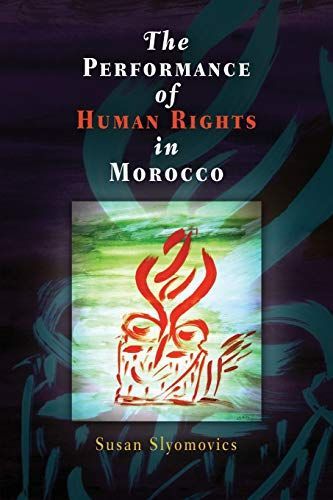
The Performance of Human Rights in Morocco
Since independence in 1956, large numbers of Moroccans have been forcibly disappeared, tortured, and imprisoned. Morocco's uncovering and acknowledging of these past human rights abuses are complicated and revealing processes. A community of human rights activists, many of them survivors of human rights violations, are attempting to reconstruct the past and explain what truly happened. What are the difficulties in presenting any event whose central content is individual pain when any corroborating police or governmental documentation is denied or absent? Susan Slyomovics argues that funerals, eulogies, mock trials, vigils and sit-ins, public testimony and witnessing, storytelling and poetry recitals are performances of human rights and strategies for opening public space in Morocco. The Performance of Human Rights in Morocco is a unique distillation of politics, anthropology, and performance studies, offering both a clear picture of the present state of human rights and a vision of a possible future for public protest and dissidence in Morocco.